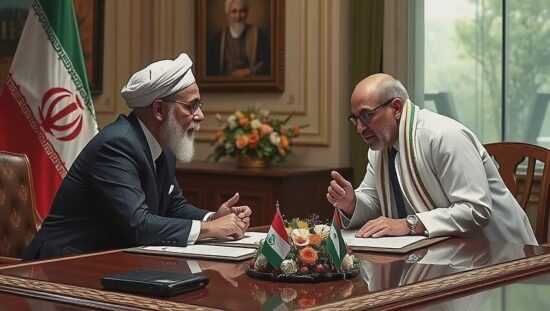Iran and the United States held talks in Oman on Saturday and agreed to meet again next week, according to the Iranian side. The dialogue aims to address Iran’s escalating nuclear program, as President Donald Trump threatens military action if no agreement can be reached.
Iran’s Foreign Minister Abbas Araghtschi announced on his Telegram channel that his delegation had a short meeting with the US delegation led by Trump’s Middle East envoy Steve Witkoff after indirect talks mediated by Oman.
“After the more than two-and-a-half-hour indirect talks, the heads of the Iranian and American delegations had a few minutes of conversation in the presence of Oman’s Foreign Minister” said Araghtschi.
He explained that the talks (the first between Iran and the Trump administration, including his first term from 2017-2021) took place in a “productive and positive atmosphere.” “Both sides agreed to continue the talks next week” wrote Araghtschi, without specifying the exact location or date.
“The focus of the talks at the moment is the de-escalation of regional tensions, the exchange of prisoners and limited agreements to ease sanctions (against Iran) in return for control of Iran’s nuclear program” said an Omani source to Reuters. An Iranian representative on the ground denied this statement, but did not specify what was wrong with it.
The failure of the negotiations would further heighten fears of a larger regional conflict, as Iran exports a significant portion of the world’s oil. Tehran has warned neighboring countries with US bases that they should expect “serious consequences” if they become involved in a US military strike against Iran.
Iran’s Supreme Leader Ayatollah Ali Khamenei, who has the final say in important state affairs, granted Araghtschi “full authority” for the talks, according to an Iranian official to Reuters. Tehran has already excluded negotiations on its defense capabilities, such as its ballistic missile program.
Israel, Washington’s closest ally in the Middle East, views Iran’s nuclear program as an existential threat and has long threatened to attack the Islamic Republic if it cannot be stopped through diplomatic means.





